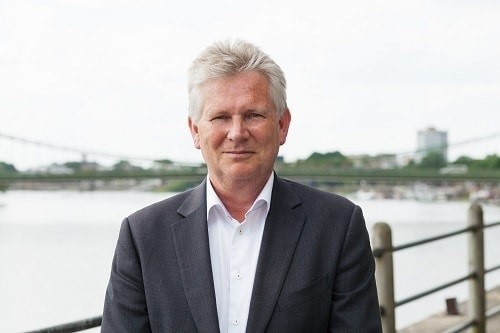At the time of writing, the facts are still emerging about why thousands of UK flights had to be cancelled or delayed on August bank holiday Monday. But the incident raises vital questions for safety professionals everywhere.
Opinion
Safe skies maintained, but at what cost?
Nearly 2,000 UK flights had to be cancelled on and after what should be one of the busiest days of the year, causing delays and frustration for many tens of thousands of holidaymakers.
People are, understandably, asking why the UK’s air traffic control provider, National Air Traffic Services (NATS), was powerless to stop its systems from shutting down critical areas having received a flight plan which was “not sufficiently standard”.
This was rare, we are told, and if it did occur again the CEO of NATS, Martin Rolfe, reassures us they “can resolve it very, very quickly”. In an interview with the BBC, Mr Rolfe said the NATS system was designed to “fail safely”.
He explained that this was to make sure erroneous information could not be passed on to air traffic controllers.
The upshot was NATS had to rely on a manual system, which was slower and led to a large backlog. But it also meant that no damage was done to other data, and no accidents or incidents took place either in the air or on the ground.
On the BBC, he added: “At no point was UK airspace closed but the number of flights was significantly reduced.”
But will that satisfy the many people who had to sleep on the floor or were left out of pocket because they had to arrange last minute accommodation or alternative transport?
And will the airline industry foot the costs – which they say could run to a hundred million pounds – of reimbursing or compensating their customers?
 Mike Robinson, chief executive of the British Safety Council.
Mike Robinson, chief executive of the British Safety Council.As a public-private partnership, partly owned by the airlines, NATS must deliver greatest efficiency while making safety its priority. This is a tension that any safety professional will recognise.
How to balance the need to ensure that no one is injured, made ill, or killed because of what you do with the need to deliver an efficient and cost-effective service?
The UK has some of the busiest skies in the world, especially in the South East and over London. And, as with all systems, we have a choice.
We can either pay large amounts up front, cater for every single possible eventuality, and provide absolute back up when something extremely rare occurs. Or we can design systems which alert us to threats and incoming risks and take immediate action to protect and safeguard us from them.
We currently await a full report from NATS on this incident, but it strikes me that in this case we have, quite rightly, chosen to go down the latter route.
If this is indeed something so rare and so unusual which, should it happen again, NATS could now deal with and resolve better, then it is probably not necessary to run an entire back up system which may itself not have been safe to operate given the erroneous flight data they had received.
Mr Rolfe explained that rejecting flight data was “nothing like throwing away spam” for air traffic controllers. He said: “If you throw away a critical piece of data you may end up – in the next 30 seconds, a minute or an hour – with something that then is not right on the screens in front of the controller.”
Clearly, not many of us operate in such a critical environment where every decision or piece of information must be handled in this way.
But I for one will sleep better knowing that the balance at NATS has not been tipped too far in the favour of ‘efficiency’ and that it still makes safety its top priority or, in its words, a “duty of care for the skies”.
Mike Robinson FCA is chief executive of the British Safety Council.
OPINION

The air we breathe is all our business
By Nicky O’Malley, director of corporate partnerships, Global Action Plan on 01 June 2023
Businesses have a vital role to play in improving air quality – and the UK’s Clean Air Day on 15 June is a great opportunity for companies to begin or renew their efforts in this area.

All jobs greener: why we need workforce transformation for a sustainable future
By Martin Baxter, deputy CEO, IEMA (Institute of Environmental Management & Assessment) on 01 June 2022
The shift to a green economy will create green jobs within new and emerging sectors, while those working in existing sectors will have to gain the requisite green skills to take advantage of the business value-creation opportunities that come from embedding sustainability across the whole organisation.

Preventing chemical pollution: how the UK is falling behind Europe
By Ruth Jones MP for Newport West & Shadow Minister for Agri-Innovation and Climate Adaptation on 01 June 2023


